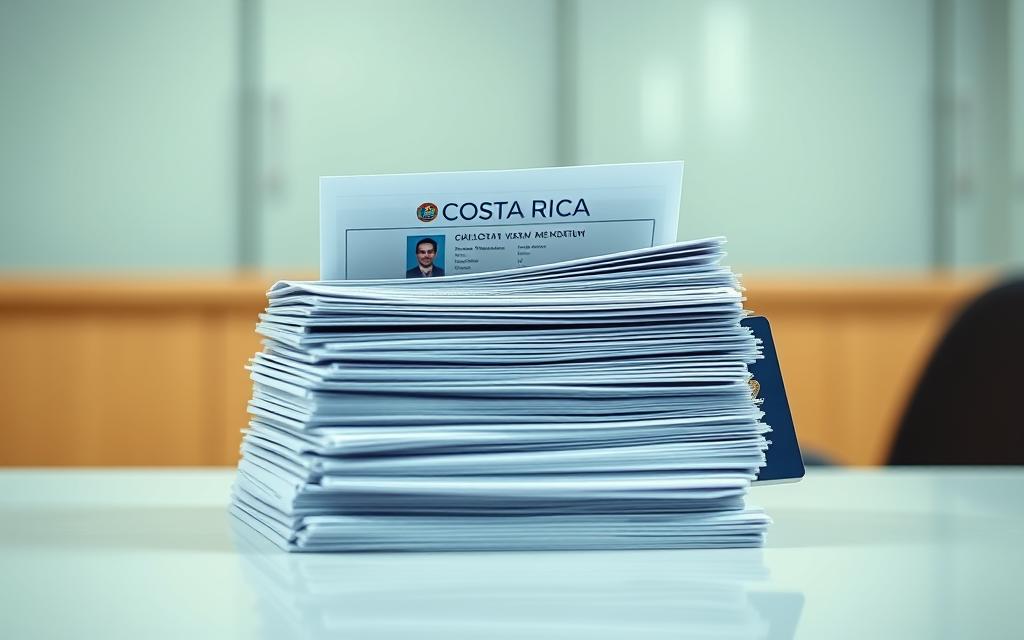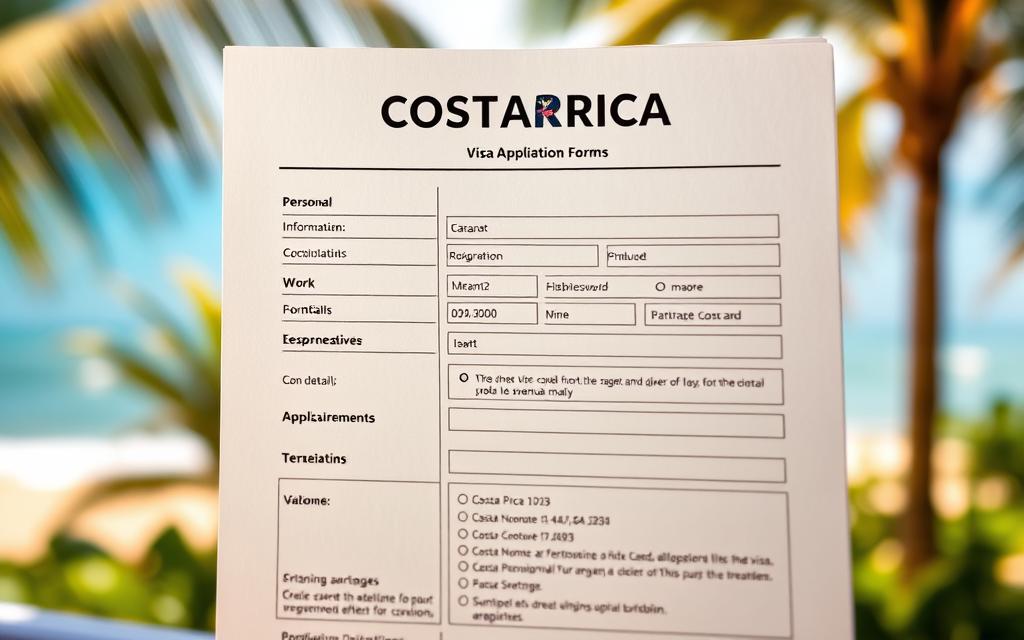"How long does a Costa Rica digital nomad visa last?"

Costa Rica has become a haven for digital nomads seeking a blend of natural beauty, modern infrastructure, and a high quality of life. As a country known for its lush rainforests, stunning waterfalls, and rich biodiversity, it offers more than just scenic beauty; it's a place where remote workers can temporarily put down roots.
For those considering Costa Rica as their next destination, understanding the duration of the digital nomad visa is crucial. The visa allows individuals to stay in the country for a specific period, but the details regarding its duration and potential extensions are essential for planning.
We will explore the timeline and requirements of the Costa Rica digital nomad visa, providing insights into how long you can stay and what options are available for extending your stay.
Understanding Costa Rica's Digital Nomad Visa

Costa Rica has taken a significant step in embracing the digital nomad lifestyle by introducing a specialized visa. This move is part of a broader strategy to attract remote workers and boost the local economy.
What is the Costa Rica Digital Nomad Visa?
The Costa Rica Digital Nomad Visa is designed for remote workers who wish to reside in the country for an extended period. It allows individuals to live in Costa Rica while maintaining their employment or business outside the country. This visa category is particularly appealing to digital nomads who are looking for a tropical environment and a relaxed lifestyle.
When Was the Digital Nomad Visa Introduced?
The digital nomad visa was introduced in response to the COVID-19 pandemic, which stranded many tourists and digital nomads in Costa Rica. As the pandemic highlighted the need for flexible visa options, the Costa Rican government established this new visa category in 2021 to attract long-term visitors and stimulate the economy.
Why Costa Rica Created This Visa Category
Costa Rica created the digital nomad visa to capitalize on the global shift toward remote work. By doing so, the country aims to transform from a short-term tourist destination to a longer-term base for remote professionals. The visa program aligns with Costa Rica's reputation as an environmentally conscious country, appealing to professionals seeking a work-life balance in a natural setting. For more information on the application process, you can visit this resource.
How Long Does a Costa Rica Digital Nomad Visa Last?

Understanding the duration of Costa Rica's digital nomad visa is crucial for planning your stay. The visa is designed to offer flexibility, allowing digital nomads to experience life in Costa Rica. We will outline the initial duration, extension options, and the requirements for maintaining your visa status.
Initial Visa Duration
The initial Costa Rica digital nomad visa is valid for one year. This period allows digital nomads to settle into the local culture and lifestyle without the immediate pressure of visa renewal. During this time, you can explore different parts of Costa Rica and decide on your preferred locations.
Extension Options
After the initial year, digital nomad visa holders can apply for a one-year extension. To qualify, applicants must demonstrate they have been physically present in Costa Rica for at least 80 days during the previous year. This requirement ensures that the visa is used as intended, for establishing a temporary base in the country.
Minimum Stay Requirements for Extension
To be eligible for the visa extension, you must have spent at least 80 consecutive days in Costa Rica during the initial one-year period. This presence can be verified through entry and exit stamps in your passport or digital immigration records. Keeping track of your time in the country is essential to meet this requirement when applying for an extension.
By understanding these requirements, digital nomads can plan their stays and movements accordingly, ensuring compliance with Costa Rica's visa regulations.
Eligibility Requirements for the Digital Nomad Visa

To apply for Costa Rica's Digital Nomad Visa, applicants must meet specific eligibility criteria that ensure they can support themselves during their stay and contribute to the local economy.
Income Requirements
The income requirement is a crucial aspect of the eligibility criteria for Costa Rica's Digital Nomad Visa. Applicants must demonstrate a stable income that meets the minimum threshold set by the Costa Rican government. This ensures that digital nomads can maintain their lifestyle without becoming a burden on the local social services.
The specific income threshold may vary, so it's essential for applicants to check the latest requirements. Generally, the income must be derived from a legitimate source, such as employment or freelance work that is consistent with the digital nomad lifestyle.
Employment Status Criteria
Costa Rica's Digital Nomad Visa is designed for remote workers and entrepreneurs. Applicants must provide proof of their employment status, which can include contracts, letters from employers, or evidence of their own business operations. This documentation should clearly indicate that their work is compatible with the digital nomad visa category.
Health Insurance Requirements
One of the critical requirements for the Digital Nomad Visa is having comprehensive health insurance that covers the applicant for the entire duration of their stay in Costa Rica. The insurance policy must have a minimum coverage of $50,000 USD and include medical expenses, hospitalization, and emergency care.
Acceptable insurance options include international health insurance plans, travel insurance with extended coverage, and policies from local Costa Rican insurance providers. This requirement ensures that digital nomads have access to necessary medical care without burdening Costa Rica's public healthcare system.
Application Process for Costa Rica's Digital Nomad Visa

Applying for Costa Rica's digital nomad visa involves several steps that we'll outline in detail. The process is designed to be efficient, allowing digital nomads to quickly settle in Costa Rica.
Required Documentation
To apply for the digital nomad visa, you'll need to gather several documents. These include a valid passport, proof of income, health insurance that covers you in Costa Rica, and a completed application form. Ensuring your documents are in order will help streamline the application process.
Additional documents may be required, such as proof of employment or a business registration, depending on your specific circumstances. It's essential to check the official government website or consult with the relevant authorities to ensure you have all the necessary paperwork.
Online vs. In-Person Application
Costa Rica offers the flexibility to apply for the digital nomad visa either online or in-person, catering to different preferences and needs. The online application can be more convenient for those not currently in Costa Rica, while an in-person application might be preferable for those already in the country.
Regardless of the method you choose, it's crucial to ensure that your application is complete and accurate to avoid any delays.
Application Fees and Processing Timeline
The application fee for Costa Rica's digital nomad visa is $100 USD, which must be paid before submitting your application. After approval, there's an additional $90 registration fee. The processing timeline is generally 15 calendar days from the date of submission, but the entire process, from preparation to receiving your visa, typically takes 2-3 months.
It's also worth noting that additional costs may include document translation, authentication fees, and health insurance premiums. Planning ahead and understanding these costs can help make your transition to Costa Rica smoother.
Step-by-Step Guide to Applying for the Digital Nomad Visa

We'll walk you through the essential steps to apply for the Costa Rica digital nomad visa. The process involves preparation, submission, and post-approval steps.
Preparing Your Application
To start, gather all required documents for your Costa Rica digital nomad visa application. Ensure you have proof of income, health insurance, and a valid passport. It's crucial to meet the eligibility criteria before submitting your application.
Submitting Your Application
Once you have all necessary documents, you can submit your application online or in-person. Be prepared to pay the application fee, which is part of the Costa Rica visa process. After submission, wait for the approval, which typically takes a few weeks.
Post-Approval Steps
After your Costa Rica digital nomad visa is approved, several steps follow. You need to schedule an appointment for biometrics and to obtain your DIMEX card (Documento de Identidad Migratorio para Extranjeros). The DIMEX card fee is approximately $20. Additionally, register with the Costa Rican Social Security system (CCSS), even if you plan to use private health insurance. Consider opening a local bank account to simplify financial transactions during your stay in Costa Rica.
Complete Cost Breakdown of the Costa Rica Digital Nomad Visa
As you prepare to apply for a Costa Rica digital nomad visa, it's essential to budget for various expenses. The total cost involves more than just the government fees; several other expenditures can add up quickly.
Government Fees and Official Expenses
The official costs associated with the Costa Rica digital nomad visa include government fees that are mandatory for the application process. These fees are set by the Costa Rican government and can vary depending on the specifics of your application.
Applicants should also consider the costs associated with obtaining required documents, such as background checks and health insurance.
Additional Costs to Consider
Beyond the official fees, most applicants encounter additional expenses. Legal assistance, for instance, can range from $300 to $800, depending on the complexity of the application and the service provider.
Other expenses include background check fees ($50-150), health insurance premiums ($75-200 per month), transportation for appointments ($50-100), notary services ($20-50), and costs for copies and printing ($20-30). To cover both expected and unexpected costs, it's advisable to budget at least $1,000 for the complete visa process.
By understanding these costs, applicants can better prepare financially for their application, ensuring a smoother process and avoiding unexpected expenses.
Tax Benefits for Digital Nomads in Costa Rica
Costa Rica's digital nomad visa offers attractive tax benefits that can significantly enhance your remote work experience. The country's approach to taxation is designed to attract digital nomads, providing exemptions that can help reduce your tax burden.
Income Tax Exemptions
One of the key benefits of Costa Rica's digital nomad visa is the exemption from income taxes on foreign-earned income. This means that if you're working for a foreign employer, your income is not subject to Costa Rican income tax. This exemption can result in significant savings, allowing you to keep more of your hard-earned money. To qualify for this exemption, you'll need to demonstrate that your income is sourced from outside Costa Rica. For more information on the required documentation, you can visit this page.
Import Tax Exemptions for Work Equipment
Digital nomads can also benefit from import tax exemptions on work equipment brought into Costa Rica. This means you can import essential tools like laptops, cameras, and specialized technology without paying import duties. To take advantage of this exemption, you'll need to declare your equipment upon entry into the country. The process involves providing a detailed list of the equipment you're bringing, along with proof of ownership and the value of the items. This benefit not only saves you money but also ensures you can maintain your productivity without additional costs.
Renewing Your Costa Rica Digital Nomad Visa
As a digital nomad in Costa Rica, renewing your visa is a crucial step in maintaining your legal status. The initial Costa Rican digital nomad visa lasts for one year, and it can be renewed for an additional year provided you meet all the requirements.
Renewal Requirements
To renew your Costa Rica digital nomad visa, you'll need to submit a renewal application along with updated financial documentation, proof of health insurance, and evidence of your time spent in Costa Rica. The renewal fee is $90 USD, which must be paid at the time of application submission.
It's essential to ensure you have all the necessary documents ready to avoid any delays in the renewal process.
Renewal Process and Timeline
The renewal application should be submitted 30-60 days before your current visa expires to ensure continuous legal status. The processing time for renewals is typically shorter than initial applications, usually taking 2-4 weeks. However, it's advisable to apply early to account for any potential delays.
By understanding the renewal requirements and process, you can ensure a smooth transition and continue to enjoy the benefits of living and working in Costa Rica as a digital nomad.
Bringing Family Members on Your Digital Nomad Visa
The Costa Rican government has made provisions for digital nomads to bring their loved ones along, making it a family-friendly destination. This aspect is particularly appealing to those who wish to relocate with their family without the hassle of separate visa applications.
Eligible Dependents
When applying for the digital nomad visa, you can include your dependents in your application. Eligible dependents typically include spouses, children, and in some cases, other relatives such as senior citizens or individuals with disabilities. To sponsor your dependents, you'll need to demonstrate a higher monthly income of at least $4,000 USD, compared to $3,000 USD for individual applicants.
Additional Requirements for Dependents
Depending on who you're sponsoring, additional documentation may be required. For spouses, a marriage certificate issued within the last six months is necessary. Children require a copy of their birth certificate. Unmarried partners may need to provide proof of their common-law union, also not older than six months. In special cases, such as sponsoring children with disabilities over 25 years of age, medical documentation may be needed. All dependent family members must have health insurance coverage for the duration of their stay in Costa Rica.
By understanding these requirements, digital nomads can better prepare their applications, ensuring a smoother transition for themselves and their families to Costa Rica.
How Costa Rica's Visa Compares to Other Digital Nomad Destinations
As digital nomads consider their options, Costa Rica's visa program stands out among competing destinations. With its unique blend of natural beauty, political stability, and quality of life, Costa Rica offers an attractive package for remote workers.
Comparison with Popular Digital Nomad Visas
Costa Rica's digital nomad visa is often compared to those offered by Portugal, Thailand, and other popular destinations. While Portugal boasts better infrastructure, and Thailand offers lower costs, Costa Rica strikes a balance between tropical lifestyle, safety, and adequate digital infrastructure. Unlike some countries that restrict dependent categories, Costa Rica's program is particularly family-friendly, allowing a wide range of dependents to be included.
In terms of tax benefits, Costa Rica offers complete tax exemption on foreign income, making it more generous than many competing digital nomad destinations. This, combined with its straightforward path to legal residency, makes Costa Rica an attractive choice for digital nomads.
Unique Benefits of Costa Rica's Program
Costa Rica's combination of natural beauty, biodiversity, political stability, and quality healthcare creates a unique value proposition for digital nomads. The country's long-standing experience with expatriates and tourists means better infrastructure and services for foreigners compared to some newer digital nomad destinations. These factors, along with its tax advantages and family-friendly policies, position Costa Rica as a top choice for digital nomads seeking a balanced lifestyle.
Best Locations for Digital Nomads in Costa Rica
From bustling cities to serene coastlines, Costa Rica provides a diverse range of environments for digital nomads to thrive.

San José and Central Valley
San José, the capital city, offers a mix of modern amenities and cultural experiences, making it an attractive hub for digital nomads. The Central Valley, with its pleasant climate, is home to many expats and remote workers.
Coastal Areas: Tamarindo, Santa Teresa, and Puerto Viejo
Coastal towns like Tamarindo, Santa Teresa, and Puerto Viejo are popular among digital nomads seeking a more relaxed pace of life. These areas offer a range of accommodation options, from budget-friendly apartments to luxury villas.
Tamarindo is known for its vibrant surf culture, while Santa Teresa offers a more laid-back atmosphere. Puerto Viejo, on the Caribbean coast, is famous for its laid-back vibe and stunning natural beauty.
Emerging Digital Nomad Hubs
Several emerging locations in Costa Rica are gaining popularity among digital nomads, including Nosara, Monteverde, Atenas, and Puerto Viejo de Sarapiquí. These areas offer a more affordable lifestyle and unique cultural experiences.
Nosara is known for its yoga and surf culture, while Monteverde offers cloud forest living with improving internet connectivity. Atenas boasts a perfect climate and lower costs, making it an attractive option for long-term stays.
Internet and Coworking Infrastructure
Costa Rica has emerged as a hotspot for digital nomads, thanks to its robust internet and coworking infrastructure. As we explore the country's digital landscape, it becomes clear that Costa Rica is well-equipped to support the needs of remote workers.

Internet Speeds Across Costa Rica
Costa Rica offers reliable internet speeds, particularly in urban areas and popular tourist destinations. While internet speeds can vary, many coworking spaces and coffee shops provide fast and stable connections, making it easy for digital nomads to stay productive.
Popular Coworking Spaces
Costa Rica is home to a growing number of coworking spaces, catering to the needs of digital nomads. In San José, options like WeWork, Selina, and Iguana Cowork offer professional environments, while beach towns like Tamarindo and Santa Teresa feature dedicated coworking spaces designed with remote workers in mind.
Monthly membership costs typically range from $100-250, depending on the location and amenities. Many coworking spaces also offer additional benefits, such as networking events and community activities, enhancing the digital nomad experience.
Practical Aspects of Living in Costa Rica as a Digital Nomad
Living in Costa Rica as a digital nomad can be a dream come true, but it's essential to understand the practical aspects of making the most of this experience. Costa Rica offers a unique blend of natural beauty, modern amenities, and a welcoming culture that makes it an attractive destination for remote workers.
Climate and Weather Considerations
Costa Rica's climate varies from tropical to subtropical, depending on the region. The country has a rainy season from May to November and a dry season from December to April. Understanding these seasonal changes is crucial for planning your stay and activities. For instance, the dry season is ideal for outdoor activities like surfing and hiking, while the rainy season can be a good time for indoor projects and relaxation.
Safety and Quality of Life
Costa Rica is generally considered safe for digital nomads, with low crime rates compared to other countries in the region. The quality of life is high, with good healthcare facilities, reliable internet, and a variety of leisure activities. However, as with any place, taking common-sense precautions to ensure personal safety is advisable.
Cost of Living Overview
The cost of living in Costa Rica varies significantly depending on the location. In San José and the Central Valley, a comfortable lifestyle can cost between $1,500 to $2,000 per month, including accommodation, food, transportation, and entertainment. Coastal areas tend to be more expensive, with prices ranging from $1,600 to $2,500 per month for equivalent comfort. Accommodation is the largest expense, with rentals ranging from $500 to $2,000 per month depending on the type and location.
Banking and Financial Management
When relocating to Costa Rica on a digital nomad visa, understanding the local banking system is essential. Effective financial management is crucial for a smooth transition and to make the most of your time in this beautiful country.
Opening a Local Bank Account
Setting up a local bank account can significantly simplify your financial management in Costa Rica. According to James Rodriguez, a financial advisor specializing in expat banking, "Setting up a local bank account saves digital nomads an average of $300 annually in transaction fees." This is because local accounts eliminate the need for frequent international transactions, reducing fees associated with ATM withdrawals and currency exchanges. For more information on the best banks for digital nomads in Costa Rica, you can visit this resource.
Money Transfer and Currency Exchange Options
Costa Rica uses the colón (CRC) as its currency, although US dollars are widely accepted in tourist areas and for larger transactions. To minimize currency exchange costs, digital nomads can use international money transfer services like Wise, Revolut, and OFX, which offer better exchange rates than traditional banks. Additionally, timing larger transfers when exchange rates are favorable and using multi-currency accounts can help reduce costs. ATM withdrawals with non-local cards incur fees of $1-4 per transaction, plus potential foreign exchange markups, making local accounts more economical for long-term stays.
Alternative Visa Options for Extended Stays
For digital nomads looking to extend their stay in Costa Rica beyond the digital nomad visa's validity, there are alternative visa options available. While the digital nomad visa offers a convenient way to live and work in Costa Rica, other visa categories can provide longer stays or different benefits.
Tourist Visa Limitations
The tourist visa, or the allowed 90-day stay for foreigners from countries that don't require a visa, is a straightforward option but comes with significant limitations. It is not renewable and requires leaving the country after the 90 days are up.
Rentista, Pensionado, and Inversionista Visas
Other options include the Rentista, Pensionado, and Inversionista visas. The Rentista visa requires proof of stable monthly income of at least $2,500 and is valid for two years, renewable for additional periods. The Pensionado visa is designed for retirees with a guaranteed pension of at least $1,000 per month. The Inversionista visa requires an investment of at least $100,000-$150,000 in a Costa Rican business or real estate and is valid for two years initially. Unlike the digital nomad visa, these visas can eventually lead to permanent residency after maintaining temporary residency for three years.
Conclusion
As we conclude our exploration of Costa Rica's digital nomad visa, it's clear that this Central American country offers a compelling opportunity for remote workers. The Costa Rica digital nomad visa provides a well-structured path for digital nomads to legally live in the country for up to two years, with an initial one-year stay and a one-year extension option.
This visa category is designed to attract remote professionals who contribute to the local economy while maintaining their international careers. While it doesn't lead to permanent residency, it offers significant benefits, including tax exemptions on foreign-earned income, legal status, and the ability to fully integrate into Costa Rican life.
Costa Rica's combination of natural beauty, political stability, good infrastructure, and welcoming culture makes it an ideal destination for digital nomads seeking a work-life balance in a tropical setting. For those seeking longer-term options, alternative visa categories like the Rentista, Pensionado, or Inversionista visas can eventually lead to permanent residency, offering a pathway to more permanent settlement in the country.
In conclusion, Costa Rica's digital nomad visa is a forward-thinking initiative that recognizes the changing nature of work. By providing a streamlined process and attractive benefits, Costa Rica is positioning itself as a leader in welcoming digital nomads and remote workers, making it an attractive choice for those looking to combine work and leisure in a beautiful and vibrant country.


